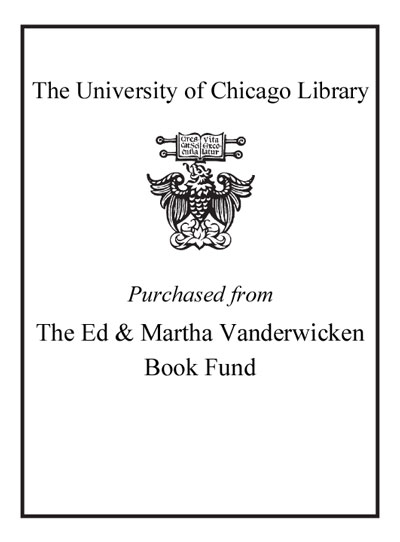Review by Choice Review
Goldsworthy's fluent narrative of the history of Late Roman Republic concludes with the demise of Antony and Cleopatra after the battle of Actium. The book's first half sets the stage. In Hellenistic Egypt, the destructive palace politics within the Ptolemaic ruling house left the kingdom weakened and at the mercy of a rising Rome. In Rome, the recent civil wars afforded young Antony an opportunity to rise to prominence outside a traditional political career path. The second half depicts Cleopatra as a dependent of Rome who relied on Caesar and, later, Antony, for her survival and prosperity; she lacked the military capacity to stand against Rome. Antony, lacking subtlety and foresight into Republic politics, reached his personal pinnacle at Philippi as a military commander, and as a triumvir in 37 BCE. Among Goldsworthy's main sources are Caesar, Cicero, Appian, Plutarch, and Dio. The author also offers an updated bibliography of modern scholarship, a chronology, a glossary, and the Ptolemy family tree--all are helpful tools. Summing Up: Highly recommended. General readers and lower-division undergraduates. H. Chang Elon University
Copyright American Library Association, used with permission.
Review by Booklist Review
A classicist on the ascent, Goldsworthy previously wrote Caesar (2006), to which this title is a natural sequel. It can be seen as a corrective to Diana Preston's Cleopatra and Antony (2009), which strove to give the Egyptian queen top billing in ancient history's most famous romance. Affection there may have been between Cleopatra and Caesar's right-hand man, but love was a political instrument in Cleopatra's relationship to Caesar and, after his assassination, to Marcus Antonius. Goldsworthy stresses Cleopatra's twin goals of keeping her throne (to which Caesar restored her) and warding off Egypt's annexation by the Roman Empire. As for Antony, Goldsworthy, reminding readers of contemporary hostility to him, depicts a personality to counter the condemnations left by Cicero and Augustan propaganda. Still, Antony does not come off well in Goldsworthy's estimation of him as a mediocre general and a self-interested power seeker. Narrating his and Cleopatra's parts in the tumultuous end of the Roman Republic, Goldsworthy skillfully integrates the partial and partisan source material into an accessible presentation of a classic tale from classical times.--Taylor, Gilbert Copyright 2010 Booklist
From Booklist, Copyright (c) American Library Association. Used with permission.
Review by Publisher's Weekly Review
Readers who recognize Goldsworthy (How Rome Fell) as Britain's most prolific and perhaps finest popular historian of Roman times will find him once again at his best. Shakespeare and Hollywood portray Antony and Cleopatra as star-crossed lovers, but historians understand that Antony (83-30 B.C.E.) was Julius Caesar's right-hand man, ruthless and ambitious. Cleopatra (69-30 B.C.E.) was not Egyptian but Greek, descended from Ptolemy, whose family had ruled Egypt for three centuries. She became Caesar's mistress in 48 B.C.E. In the Roman civil war that followed Caesar's assassination four years later, Antony shared power with Caesar's adopted son, Octavian (later emperor Augustus), until they quarreled. Antony and Cleopatra first met in 41 B.C.E. and ruled Egypt together for three years until Octavian's invading armies approached, at which point they both committed suicide. Unlike many competing authors, Goldsworthy never disguises the scanty evidence for many historical events. Some of his best passages review surviving documents, discuss their biases, draw parallels from his vast knowledge of Roman history, and recount what probably happened unless, as he often admits in this thoughtful, deeply satisfying work, even speculation is impossible. Maps. (Sept.) (c) Copyright PWxyz, LLC. All rights reserved.
(c) Copyright PWxyz, LLC. All rights reserved
Review by Library Journal Review
In the first century BCE, the Roman world underwent massive political and social change as it transformed itself from a regional republic based on fixed legal precedents into a vast military empire under absolute rule. Goldsworthy (How Rome Fell) uses this scrupulously researched dual biography of Marcus Antonius and Cleopatra, key players in the drama, to explain how Julius Caesar and his adopted son, Octavian, changed the classical world by using and, ultimately, defeating the iconic couple at Actium. He asserts that Cleopatra, in her affairs with Antony (and earlier with Caesar), was fundamentally a creature of political expediency and that although these relationships may have been passionate, these were not the pairing of two equal leaders but that of a ruler and vassal queen. Along the way, Goldsworthy debunks popular myths, suggesting that Antony was actually a mediocre general and confirming, in great genealogical detail, that Cleopatra was, indeed, not Egyptian but the last member of the Greek Ptolemaic dynasty. The narration by actor Steven Crossley is superb, driving the story with a crisp British accent. VERDICT Highly recommended for classical and military history fans. ["With limited source material, (Goldsworthy) constructs a plausible portrait of two practical romantics whose storied love followed the path of political advantage": LJ 9/1/10 review of the Yale Univ. hc.]-Forrest Link, Coll. of New Jersey Lib., Ewing © Copyright 2015. Library Journals LLC, a wholly owned subsidiary of Media Source, Inc. No redistribution permitted.
(c) Copyright Library Journals LLC, a wholly owned subsidiary of Media Source, Inc. No redistribution permitted.
Review by Choice Review
Review by Booklist Review
Review by Publisher's Weekly Review
Review by Library Journal Review

